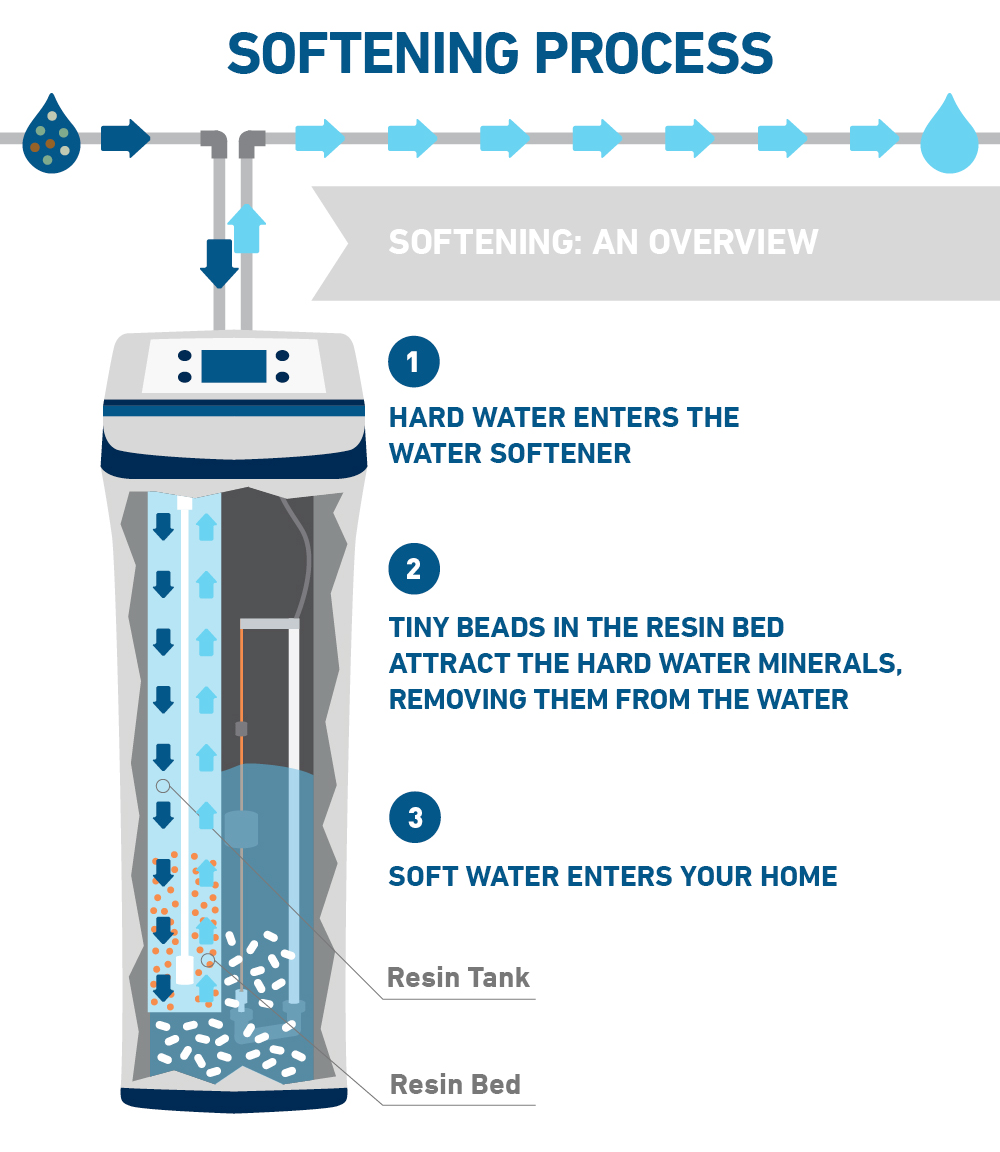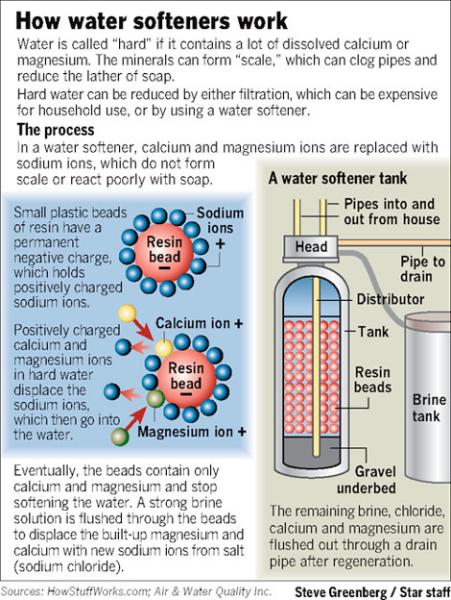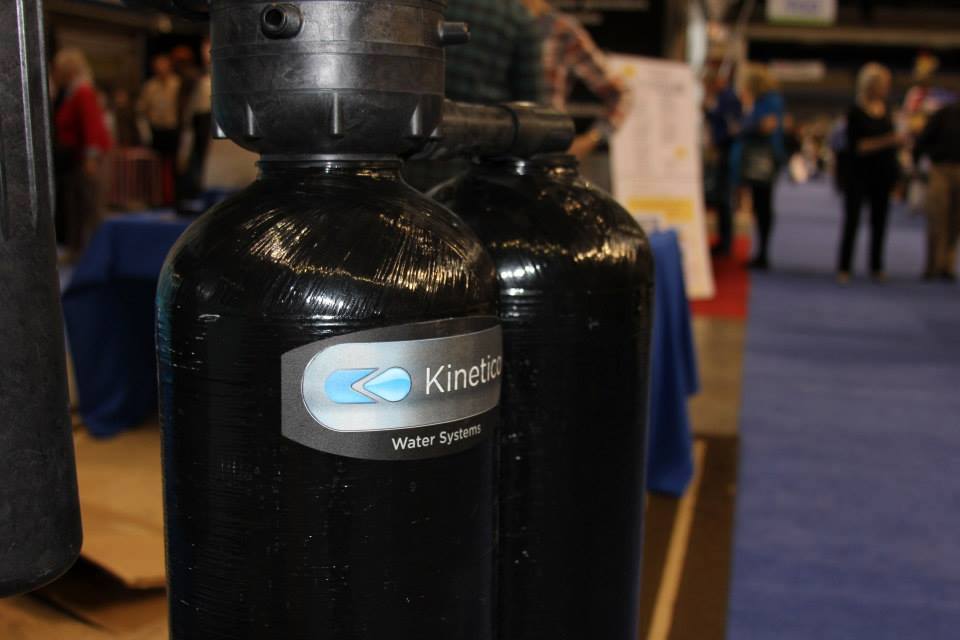How Does A Commercial Water Softener Work. A water softener is a type of filtering appliance that removes calcium and magnesium from the water. Hire a Pro & Get the Job Done Right!

Unless you're already well-versed in the science of water treatment, trying to explain how the water softener in your basement works can be a little trickier.
The water softener unit is located in your household plumbing near the place where water enters the house so that it softens the water used for drinking and washing but not for irrigation.
Water softeners work through a process called ion exchange which eliminates calcium and magnesium from the water. Water softeners work through basic chemistry. Resin beads in the tank attract and hold onto hard water minerals, removing them from the water. Our ovens, refrigerators, washers, dryers, and water heaters all operate under pretty simple principles, even if the mechanics behind them are complicated. Upon entering the mineral tank, the hard water flows through a collection of resin beads. A water softener is packed with resin beads.
Water softening systems are designed with negatively charged resin beads. A water softener is packed with resin beads. Fleck's History & Why It Matters. In this article, we're going to be talking about the best water softener systems that are available on the market. A water softener is a type of filtering appliance that removes calcium and magnesium from the water. Resin beads in the tank attract and hold onto hard water minerals, removing them from the water.
The resin beads have a negative electric charge, which attracts the positive charge of hard water particles such as calcium and magnesium. Fleck's History & Why It Matters. The resin in most modern softeners consists of millions of tiny plastic beads, all of which are negatively charged exchange sites.






